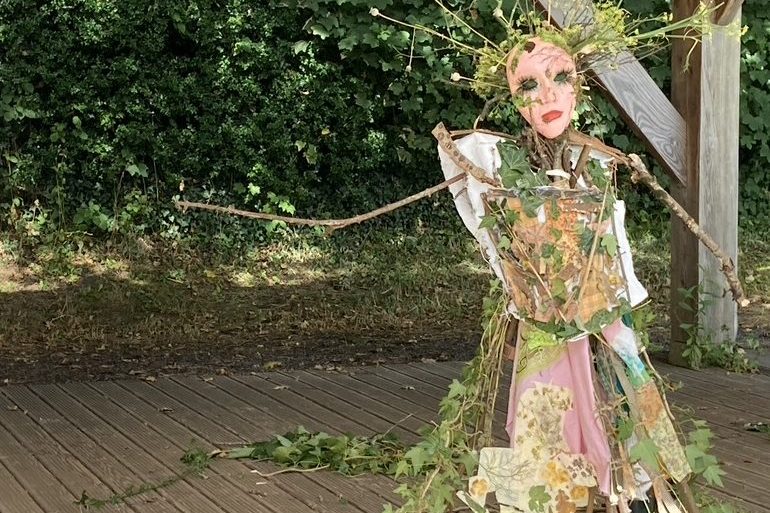
Make Patchwork for the Planet
‘Textiles culture’ and waste are major contributor to the environmental crisis. The UK has the dubious distinction of being the fourth largest textile waste producer in Europe: UK ‘Fast Fashion creates 92 M tonnes of textile waste a year. 35% of microplastics in the oceans are attributable to the textile industry. Textile production contributes 10% of global emissions and uses massive amounts of fresh water.
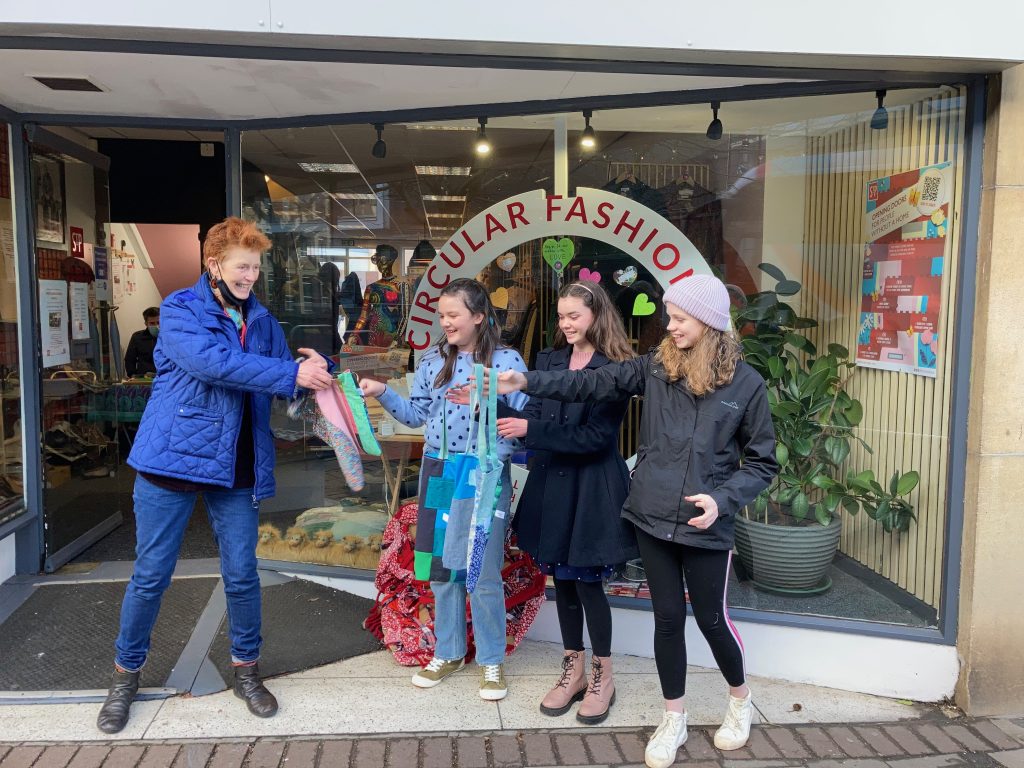
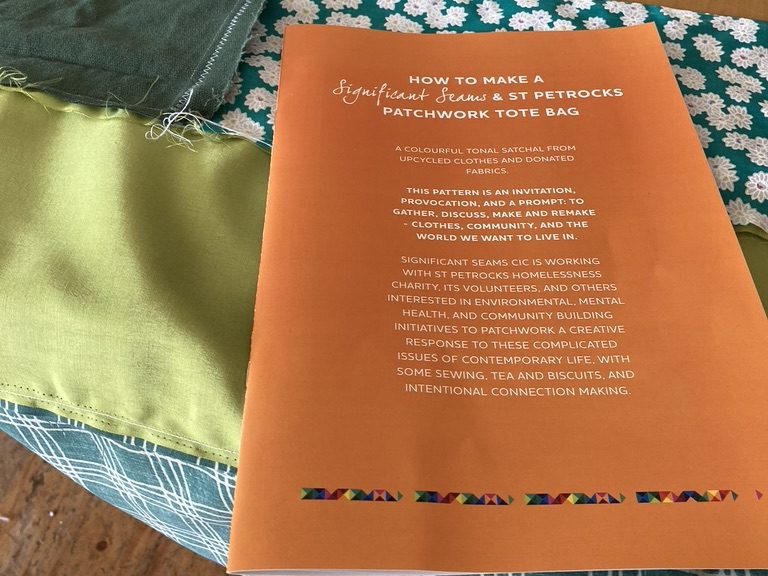
Freestyle Patchwork Pattern
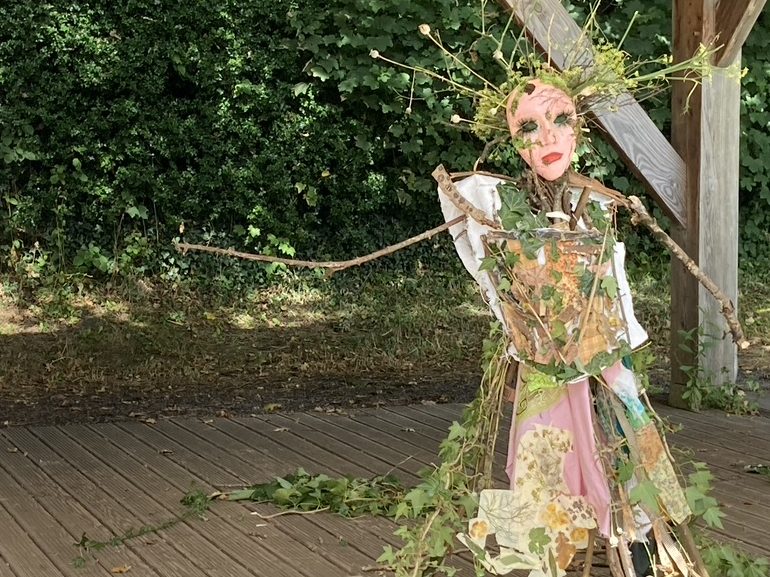
#naturegoddess
In our summer ’22 Holiday Activity & Food programme, young people learned freestyle patchwork over a four day workshop – and also co-created the nature goddess sculpture, and invite use of the #naturegoddess on social media to share patchwork for the planet makes.
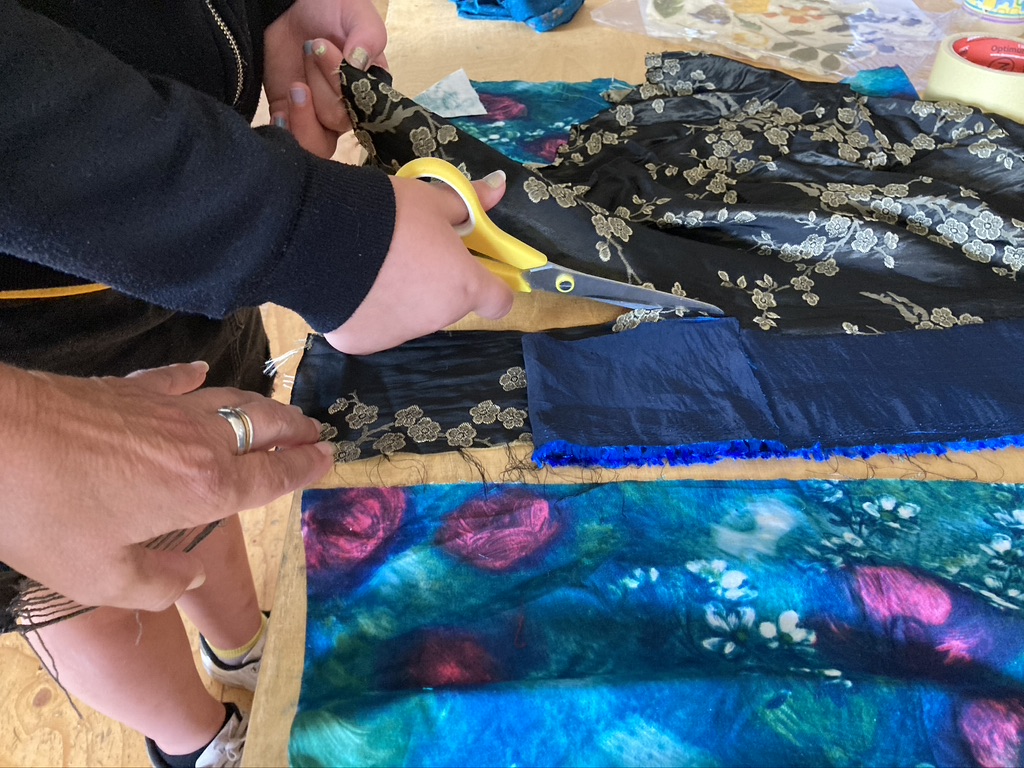
Patchwork Workshops
Further, textiles are relatively hard to recycle: the processes are complex, expensive, and resource-intensive. To recycle fabric the colour must be stripped out, a further polluting process that can degrade the qualities of fibres, reducing their potential uses. Overconsumption also means the volumes available for recycling far outstrip the current markets for recycled end-products. The scale of the challenges can lead to a sense of ‘I’m-alone-against-the-world,’ eco-anxiety and grief for those attempting to counter the problems.
Our pilot session with St Petrocks demonstrated some of the complexities on a micro scale, making the complexities tangible. Tables were heaped with donations left over after being sorted for 1)potential use for homeless clients 2) immediate sale in the shop and 3) storage for future season-appropriate sale in the shop.
Even before the daily delivery of a van load of further donations backs up to the shop door, what remains is substantial – and a waste management problem heaped on a charity trying to raise funds to do good. After our processing of garments, there are sorted piles of more usable fabrics that need storing until transformed into something new and presumed saleable.

